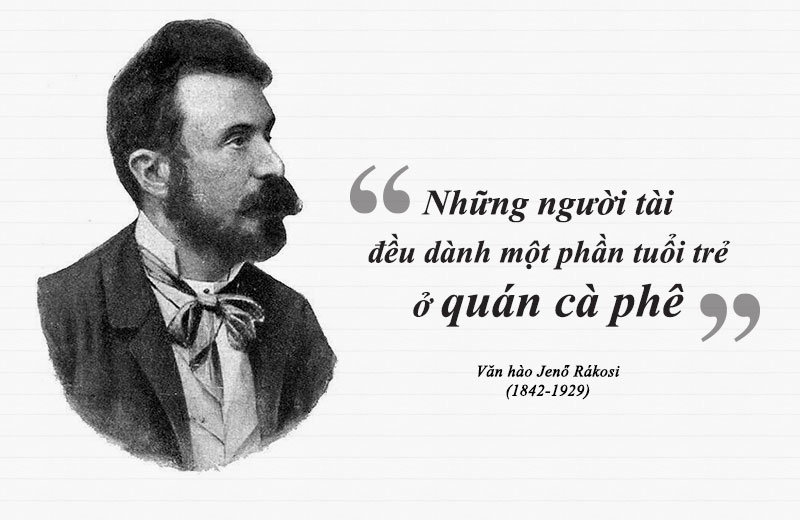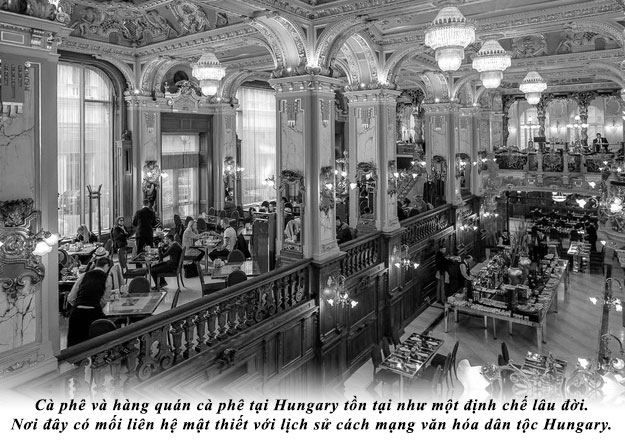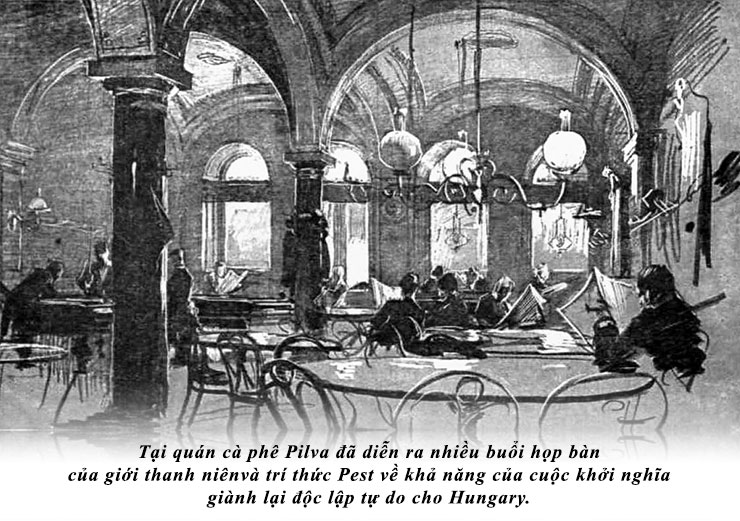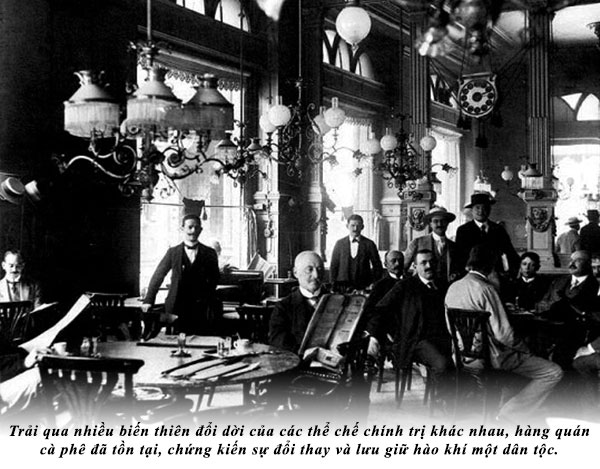Article 40: Cafes and Hungarian national pride
Coffee and the coffee shop in Hungary existed as a long-standing institution. This place had a close connection with the history of nation building and became a place to breathe the soul for patriotism to develop and sublimate.

“Talented people spend part of their youth in coffee shops” Writer Jenő Rákosi (1842 – 1929)
Since the 16th century, coffee followed the footsteps of the Turkish expeditionary army into Hungary, laying the first foundation for the coffee institution to form here. Coffee culture gradually became popular when Hungarian aristocrats and military officers came into contact with coffee shops during their visits to Vienna, and brought this habit back to Hungarian society. Coffee shops and cafes gradually appeared and developed to become the center of cultural and intellectual life unique in Hungary in a very unique way.
The first Hungarian-style coffee shop opened in 1714 in the city of Buda. Different from noisy cafes in Turkey, coffee shops in Hungary aimed to provide an entertainment space for diners, creating a comfortable and open space for meetings and conversations. There was always space for intellectual subjects such as chess, billiards, etc. Besides, during the summer, people would open up garden spaces, so that diners could enjoy coffee in the outdoor space, served with sweets or ice cream.

Coffee and the coffee shop in Hungary existed as a long-standing institution. This place had a close connection with the history of the Hungarian national cultural revolution.
The charm of cafes made enjoying coffee an integral part of Hungarian life. By 1896, there were more than 500 coffee shops operating in Hungary. Over the next 200 years, coffee culture reached its brightest era, with the amount of coffee shops in the capital increasing 166 times. Coffee shops such as New York Coffee House, Pilvax, Helvetia or Berger became one of the places for intellectuals to converse and participate in cultural life. The coffee shop was then closely associated with the social and cultural life of the Hungarian people, and especially in the constantly changing years of European politics, it became the ideal gathering place of the Hungarian patriotic intellectuals, those who started great revolutionary movements.

At the Pilvax cafe, there were many meetings of Pest youth and intellectuals about the possibility of the uprising to regain independence and freedom for Hungary.
The Pilvax Café is proudly referred to today as the headquarters of the national revolution. It is a historical witness of the great and heroic years of searching for freedom of the Hungarian people. There were many meetings of the youth and intellectuals of Pest on the uprising to regain independence and freedom for the nation, which resulted in the declaration of independence on March 15, 1848.
In 1867, Austria and Hungary linked to form the Austro-Hungarian empire, the two capitals were likened to twins of two nations, Vienna and Budapest, becoming a place where coffee culture flourished. This was also the period when the number of coffee shops in Hungary increased rapidly, becoming a frequent place for writers, artists, politicians… bringing along the awakening of humanity, which was the fundamental source of energy that created the “coffee society”. This place became the cradle of countless great people in many fields of literature, art and science such as Bartok, Molnar, Theodore Herzl, Arthur Koestler, Marcel Breuer and physicists Leo Szilard, John von Neumann….

Experiencing many changes and shifts of different political institutions, coffee shops have existed, witnessed the transformation and preserved the spirit of a nation.
In the last decade of the 19th century, coffee shops once again played an important historical witness as the starting place of the national cultural revolution. From Café Fiume, a group of protesters in support of the national patriotic hero Kossuth approached the National Theater to request a halt to performances in order to respect national cultural diversity and religious freedom.
Experiencing many changes and shifts of different political institutions, yet, coffee shops still exist in the city of Budapest over the years, witnessing the transformation of the country and preserving the national spirit. In today’s urban accordion, there is still the aura of previous great revolutions that reminds Hungarians of a proud past.
THE REAL COFFEE
ROASTED ONLY FOR PEOPLE OF WISDOM!
Source: “The Philosophical Way of Coffee” – copyright by Trung Nguyen Legend


